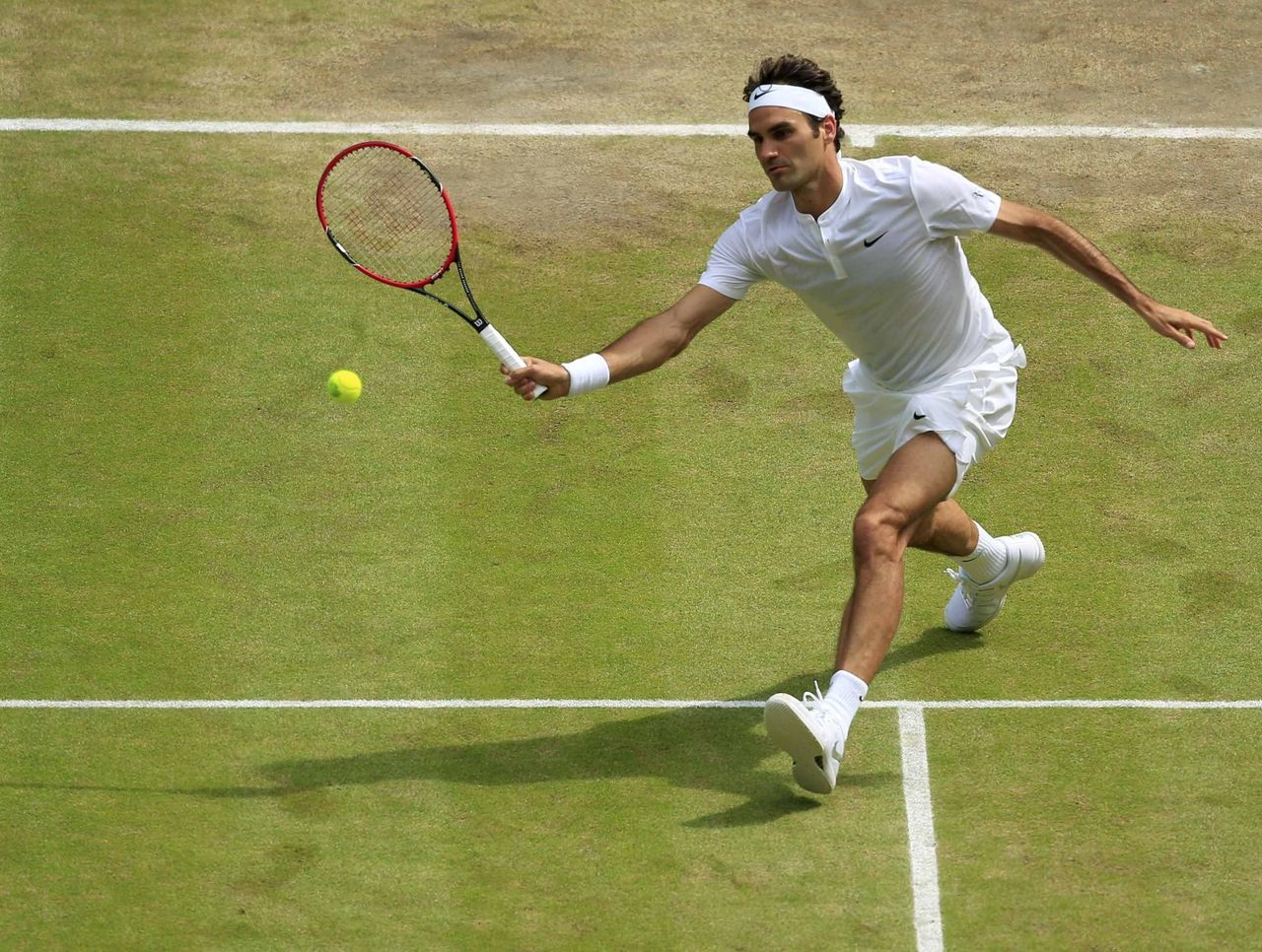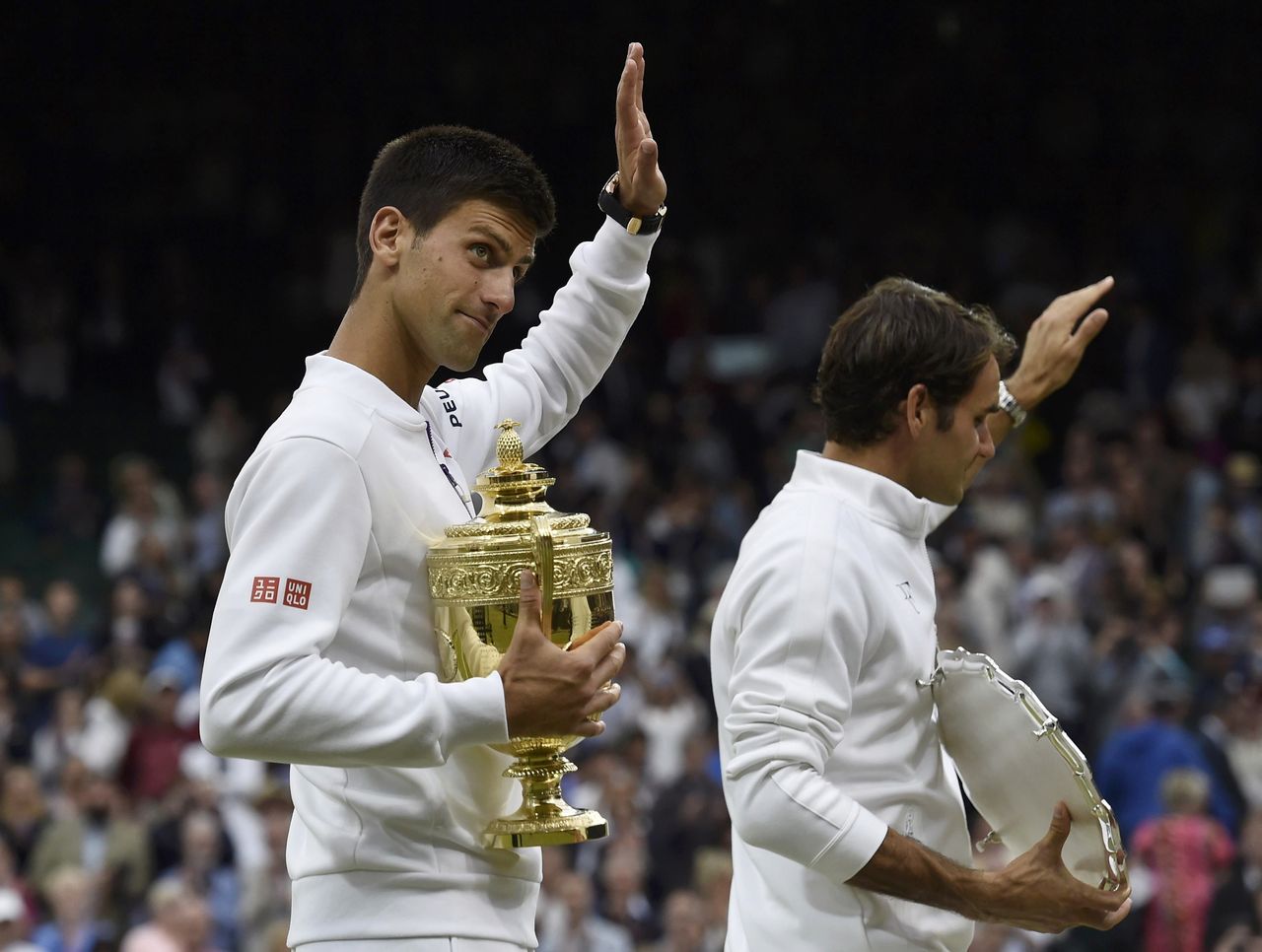The great Novak Djokovic scores another unpopular, underappreciated victory at Wimbledon
A pall is cast over a crowd when Roger Federer is losing - a collective anxiety strong enough to permeate a TV screen and smother even the casual viewer watching from the sofa.
Sports aren't typically so conducive to front-running, but it's always been different with Federer. Perhaps because he was simply too good not to swoon over, or because he offered the perfect balance between showmanship and sportsmanship, or simply because he showed us just how artful, imaginative, and beautiful tennis can be. Whatever the reason, back when he was smashing records and winning everything in sight, when that pall was rarely ever heard or felt, there were few athletes (or teams) so simultaneously dominant and vocally supported.
And that support only seems to have grown in recent years, as Federer has progressed into his ostensible twilight years. He's managed to upend the aging curve, though, remaining competitive well into his 30s. Supporters now cling to his vulnerability as they root for the underdog.
The pall that pervades his losses these days is less buzzy static than hushed dread.

The dread can feel particularly suffocating when Federer is losing to Novak Djokovic, an extraordinary tennis player and longtime world no. 1, who has seemingly mastered every skill, except endearing himself to fans - despite his best efforts.
In Sunday's Wimbledon final, a delirious pro-Federer crowd was shouted down (or else lulled into a malaise) by Djokovic, as he took control of the match in the third set. The fans had been most frenzied during the second-set tiebreaker, in which their guy saved six set points to win 12-10 and level the match at a set apiece. Djokovic fumed and cursed and ripped off his shirt (more on this in a bit), then pulled himself together and got back down to business.
The match had started out looking like a whiz-bang slugfest, but Djokovic turned it into a meticulous, grind-it-out affair. He played strangulating defense, eliminating Federer's beloved angles with his placement and coverage. He was cautious but opportunistic, slowly inching further inside the baseline during rallies, and pouncing any time he got a look at a second serve or a sitting approach.
The final two sets turned into a tactical clinic. Djokovic hit 23 winners to just five unforced errors, dropped just four points on his first serve, faced just one break point, and won 13-of-16 points at net. When he clinched the title by breaking Federer - on a beautifully constructed point finished with a forehand winner - the Centre Court crowd murmured something like grudging approval.
For the now three-time Wimbledon champ, nine-time Grand Slam winner, and unquestioned best player in the world, that would have to suffice.

Federer has always looked at home on Centre Court. You can maybe say that about any tennis court he steps on - no Grand Slam is played in Switzerland, of course, yet still each one feels, in some way, like his home major - but it's at Wimbledon that this seems to make the most sense.
In the nostalgia-soaked confines of the All England Club, more than anywhere else, there's something surreal about him; he basks in some vague, auratic glow. He looks all the more regal and imperious in white. He fits the longed-for (if disingenuous) archetype of the genteel British sportsman. He is, to borrow the most pervasive shorthand, classy. He wins and loses with humility and grace. He is a "great champion."
This isn't to say Federer doesn't deserve all that treacly reverence. Only that Djokovic's own greatness - which has reached historic heights over the past several years - oughtn't be obfuscated by it. He's in the midst of one of the best seasons of all time, and one volcanic Stan Wawrinka performance is the only reason he isn't, like Serena Williams, three-quarters of the way to a calendar Slam.
And yet, there's no ignoring Djokovic lacks the magnetism his contemporaries carried when they flew at the same dizzying heights. While greatness has appeared to come effortlessly to Federer, and even Rafa Nadal, you can almost sense the weight of it around Djokovic's neck.
Perhaps that has to do with how he carries himself. Not off the court - where he has a considerable cache of charm, and comes off as well-spoken, considerate, funny, and warm - but on it, where he constantly seems to be wrestling his own demons. Here's how he responded after losing the second set Sunday:
Or perhaps it's his game, which is efficient but not thrilling, impressive but not eye-popping. Where Federer consistently goes for unthinkable, low-percentage shots that dazzle when they land - and still inspire awe for their sheer derring-do when they sail 10 feet out - Djokovic waits for his opportunities, playing things as prudently as possible.
Federer at his best is an avant-garde maestro, an improviser and a visionary; he perceives space differently than others, sees things in ways nobody else can. Nadal reminds more of a Jackson Pollock-like action painter - whirling, whipping, and splattering his way to a gorgeous mess. Djokovic's style produces something akin to a masterpiece via paint-by-numbers; pretty but somehow plain, precise but uninspired, never a stroke out of place.
That's not the critique it sounds like. As inextricably bound as it is to aesthetics, tennis is not art (at least, that's not all it is), because tennis still adheres to the cold, objective binary of wins and losses. And Djokovic's unparalleled ability to paint so precisely between the lines produces its own kind of beauty. More importantly, it produces victories. Piles and piles of victories. And winning is an answer unto itself. It carries its own internal logic. Winning is beautiful, in its way, no matter how it's achieved, simply for being winning.
And if there's one thing Sunday's match reinforced, it's that Djokovic is, above all else, a winner. Maybe one day we'll learn to love him for that.
HEADLINES
- ATP trying to help Medvedev leave Dubai after travel shutdown
- Medvedev collects Dubai title after Griekspoor withdraws with injury
- Tennis Australia's Craig Tiley to become CEO of USTA
- Roddick joining ESPN's coverage of Wimbledon, US Open
- Alcaraz takes down Fils in less than an hour to claim Qatar Open title